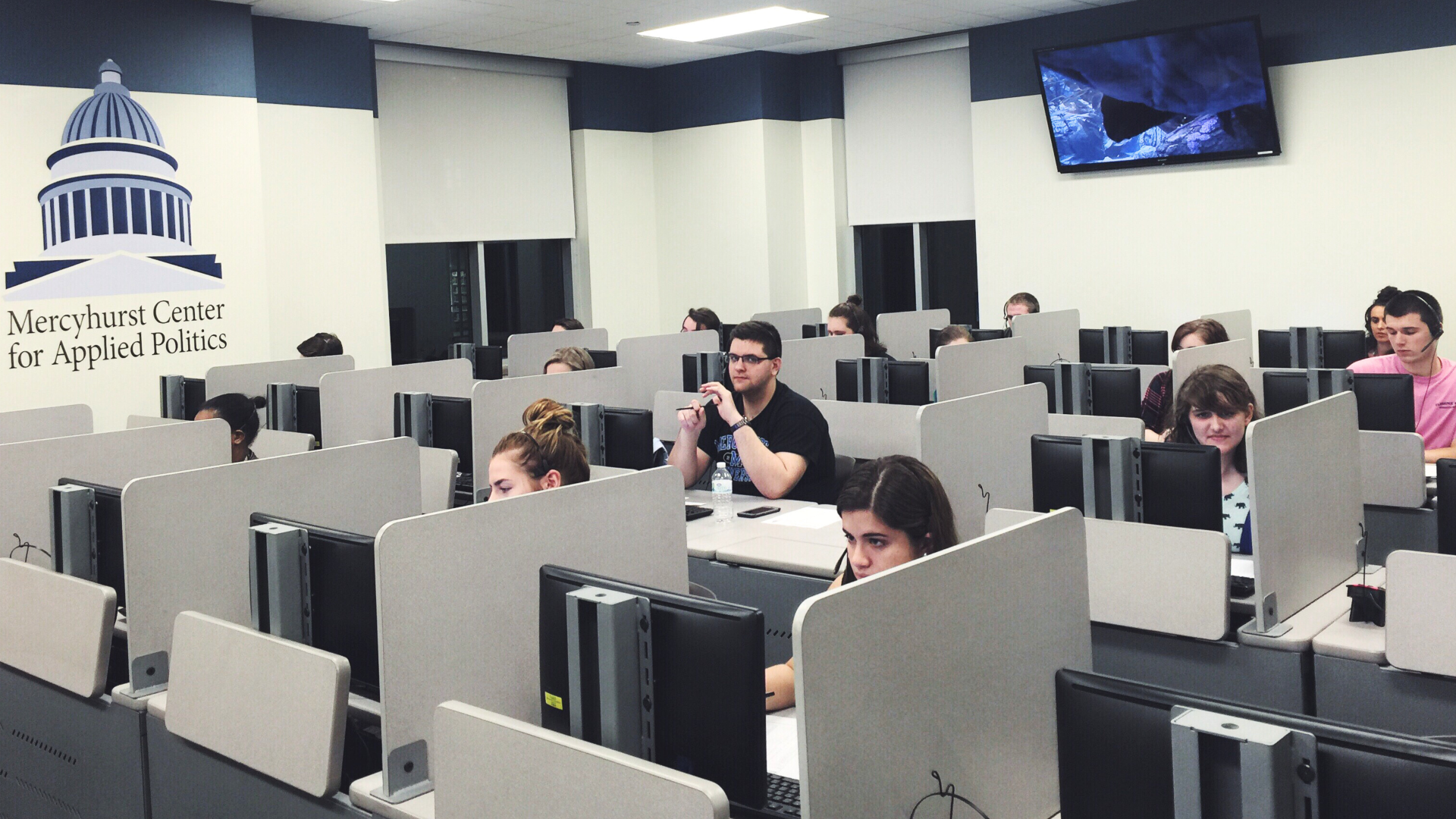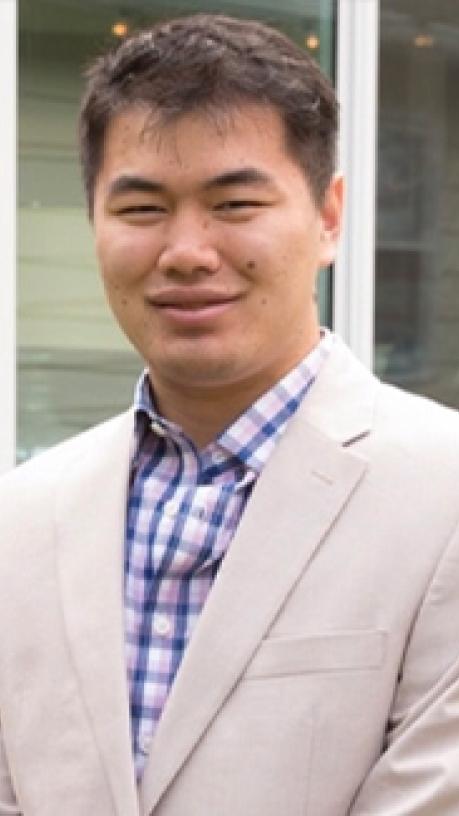
Political Science
Shaping future political leaders.
When you think of politics, what comes to mind? Elections? The President? Political parties? Politics is complex. While government is part of politics, it’s not the only aspect. And, becoming a politician is not your only option. As a political science major, you’ll study political theory, comparative politics, public administration, international relations, public law and political methodology. In addition, you’ll also have the option of earning a concentration in one of several subfields of the discipline including international relations, pre-law, applied politics, or environmental studies and politics. Majoring in political science can lead you to a career in law, international diplomacy, teaching, journalism, business, and many other exciting fields.
B.A. in Political Science
The political science major, which leads to a Bachelor of Arts degree, is designed to provide a sound basis for both graduate studies and professional success in government service, law, teaching, applied politics, journalism, foreign service, and many other fields. In fact, Mercyhurst’s Political Science Department has a long record of producing some of the most accomplished and award-winning students at the university.
The Department of Political Science offers programs of study that lead Bachelor of Arts degrees in Political Science, Political Science with a concentration in International Relations, and Political Science with a concentration in Pre-Law; and that lead to minors in Political Science, International Relations and Diplomacy, and Public Policy. Courses leading to a major and minor are taught by an award winning faculty that is dedicated to undergraduate instruction. This instruction focuses on providing students with an understanding of the content and methods of the discipline, and on developing students’ research, writing, and critical thinking skills. This is accomplished by means of innovative assignments and classroom instruction.
The political science major provides students with a number of extracurricular opportunities directly related to the major, and unrivaled access to faculty members who are dedicated to helping students achieve their academic and professional goals.
Students who wish to pursue a career in a field related to political science may choose to enter the workforce immediately upon graduation or earn a graduate degree in political science, public administration, public policy, law, or a related field. Since 1993, the placement rate for political science majors at Mercyhurst who apply to graduate or law school is nearly 100%. Graduates of the program who pursue careers not directly related to political science have also found success. Today, graduates of the program are working in the fields of banking, real estate, energy, education, environmental protection, and others. Other students have chosen to pursue service opportunities, such as with AmeriCorps, upon graduation.
Fast Facts
- The Department of Political Science offers programs of study that lead to Bachelor of Arts degrees in Political Science, Political Science with a concentration in International Relations, and Political Science with a concentration in Pre-Law, and that lead to minors in Political Science, International Relations and Diplomacy, and Public Policy.
- Each spring, two dozen political science majors travel to Washington, D.C. to tour the Capitol, visit historic landmarks and museums, and speak with admissions counselors from DC-area graduate and law schools.
- Students can join Pi Sigma Alpha, a political science honor society with more than 700 chapters across the country. During election years, members have been known to organize formal political debates.
- The Mercyhurst Center for Applied Politics has earned a national reputation for the skill and professionalism of our Political Science students, as they collect and analyze political data and provide unbiased assessments of public opinion.
Learning Outcomes
Demonstrate knowledge of:
- Foundational and contemporary political science theories; apply theoretical approaches to data analysis and practical experiences
- Relevant political science methodologies; apply relevant models of inquiry to data gathering
- Institutions and processes associated with governance and apply this knowledge to historical and contemporary
- Ability to think critically, which includes identifying and explaining issues, recognizing concepts and assumptions, acknowledging multiple perspectives, and evaluating evidence to reach
- Written and oral communication skills expected of a professional in the field
- Preparation for graduate education and careers associated with the political science field
- White House Press Briefing Room Shakeup, March 31, 2025, Erie News Now
- COVID Implications on 5th Anniversary of Pandemic, March 11, 2025, Erie News Now
- Presidential Election Outcome/Analysis Joe Morris, Nov. 11, 2024, Erie News Now
- Swing Town Often Picks the Presidential Election Winner, Nov. 1, 2024, RTÉ News
- Pennsylvania: The State Could Decide it All, Oct. 28, 2024, Voice of America
Catch Up with Political Science Alumni

After completing his undergraduate studies in Political Science and Psychology, he earned his master’s degree in public policy from George Mason University. Besides his full-time employment with the Organization for Autism Research (OAR), he is a sought-after public speaker, advocate, and consultant on the equitable inclusion of autistic individuals in education and employment. He has spoken at the United Nations for World Autism Acceptance Day as well as at Stanford and Johns Hopkins.

After graduating magna cum laude in 2020 with a B.A. in Political Science (Pre-Law) and minor in Gender Studies, Alexandra received her master’s in public administration with a concentration in governance and international public management from the University of Pittsburgh's Graduate School of Public and International Affairs in 2022. Alexandra is the administrative coordinator for the Strategy & Research team and assists in performing strategic and market research and analysis for the Pittsburgh region.

At Mercyhurst, Brittany was involved in student government, served as president of the International Students Organization, and co-founded Mercyhurst’s chapter of the Student Alliance for Prison Reform (SAPR). She also volunteered as a peer tutor and a polling representative with Mercyhurst Center for Applied Politics. Brittany is a J.D. candidate at the University of Michigan School of Law, where she’s a student-attorney with the Michigan Innocence Clinic, which has successfully won the release of 26 men and women who had been wrongfully convicted of crimes since its inception in 2009.
Joseph Morris, D.A.
Chair, Department of Political Science
Office: Preston 110
Meet the Faculty
Political Science

Joseph Morris, D.A.
Dean, School of Intelligence, Computing, and Global Politics; Chair, Department of Political Science; Professor

